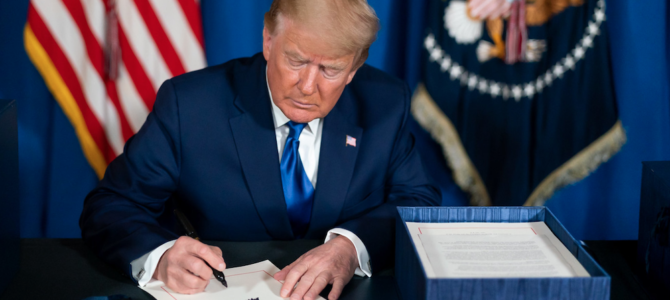
Anti-Trump “conservatives” such as the Lincoln Project, former Rep. Justin Amash, and more recently Rep. Liz Cheney all have something in common. They almost always attack the president’s tone or personal actions and almost never his administration’s actions and policies. This isn’t an accident. It is because in many cases they do not share Trump’s policy preferences, but those policies are far more popular with voters than theirs are.
On issues such as global trade, aggressive opposition to China, ending foreign wars, growing American manufacturing, securing the border, and using government to fight the culture wars, Trump has transformed the Republican Party. Trump is not a Chamber of Commerce Republican; in fact, the Chamber denounced him this week and threatened donations to pro-Trump Republicans. Like most things, this decision was all about money and power, not about any dedication to democracy.
The hope for this small but very influential group of Republicans and former Republicans over the last four years has been that if conservative voters come to dislike Trump, they will also stop liking his policies. In fact, many are blunt about the fact that they think most of his voters are too stupid to even know what his policies are. That is wrong, and it’s why their past efforts to wrest back Republican voters have failed and why this one will too.
There are, of course, voters in the thrall of Trump’s cult of personality, just as there were under Obama. But I have talked to a lot of Trump voters all over the country in the past several years, and most of them take a transactional view of Trump. They know he can be petty and vindictive, but they also know he has achieved wins on their issues — the ones listed above, not the Chamber of Commerce issues — that would have been impossible for the GOP to achieve before Trump.
What exactly constitutes Trump’s political philosophy is hotly debated, with some people arguing he has none. But it’s actually very simple. Trump echoes almost exactly the 1990s politics of Ross Perot, Pat Buchanan, and the Reform Party. From Perot, he takes his skepticism on global trade, immigration, and foreign wars. From Buchanan, he borrows a unique and fearless willingness to fight against political correctness. These issues have always had a big constituency, just not previously one big enough to compete with the Democrats and Republicans. Now they are the Republicans.
No Republican is going to have success running on sweetheart trade deals with China, more wars, and open borders. Culturally, GOP voters now demand leaders who call for active use of government power to fight against the excesses of transgenderism, leaders who refuse to sit by as their kids are called racist by their fifth-grade teachers.
The establishment GOP wants to go back to a time when voters who hold Trump’s positions dutifully voted for them because their own positions had no hope of winning, but Trump changed that forever. They know they can win now, and they certainly know that they win Republican primaries. There is a reckoning that the Republican Party needs, but it’s not the one most pundits think it is, and it has little to do with Trump.
This reckoning is all about policies, and it is Liz Cheney and the Chamber that have the most ceding of ground to do. They are the ones who must make concessions on trade and foreign policy. They are the ones who must push back more forcefully against political correctness and new, divisive interpretations of racism. They must realize that the GOP is better off letting college-educated suburbanites, once their bread and butter, drift to Democrats in favor of the new, more diverse working-class party the populists are developing.
For better or worse, the Republicans are now a bottom-up rather than a top-down party. Working-class voters, who felt powerless for decades as both parties sent their jobs and children overseas with little benefit to their own conditions, aren’t going back to the farm. The challenge for the Republicans is to appeal to that base and see it continue to grow into new broader demographics.
In some sense, Trump did stage a coup — not last week, but five years ago as he launched his bid for the White House. In 2000, he nearly ran as the Reform Party candidate. That would likely have been a mistake. What he eventually did 15 years later was much smarter; he effectively turned the GOP into the Reform Party. That isn’t going to change no matter how much the establishment hopes for it.
They must decide if they can bend and stay in the conservative coalition or if their efforts are better off on the other side as a moderating voice. Either way, they are not getting the Republican Party they knew and loved back any time soon. And for once, that is good for both the GOP and its voters.









